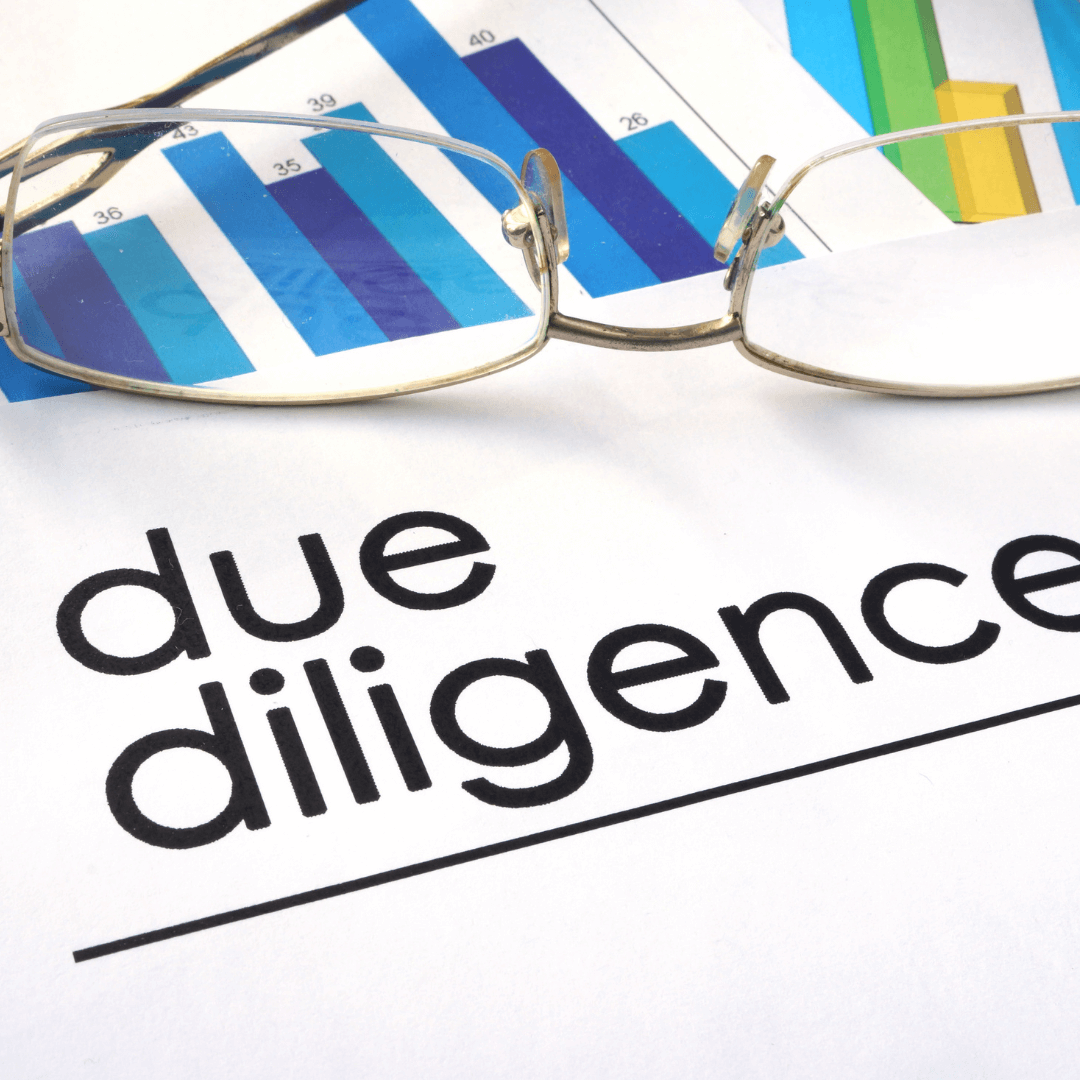What is due diligence?
If you’re considering buying a business, you may have heard the term ‘due diligence’ being thrown around in conversation. You may have heard of the term in the world outside of business sales too – because due diligence is a common term for investigating and fact-checking legal and financial details prior to a transaction being completed.
When purchasing a business, a buyer would be advised to conduct thorough due diligence before the sale takes place. What does that involve?
What does due diligence involve?
The process is led by the potential buyer and is facilitated by other professionals involved in the sale process (typically their Accountant and Lawyer). Due diligence involves the review of all information provided to ensure accuracy; verifying financials and inspecting records before making a concrete and final decision to confirm the purchase. Examples of documents that are included in the due diligence review include, inter alia:
- Financial statements (profit and loss statements etc.) backed up by tax returns
- Condition reports of plant and equipment included in the sale. Plus, financial agreements in place for equipment, if applicable
- The ownership of essential assets and intellectual property
- Working capital assessments
- Staff- functions and history
- Checking of all legal agreements in place, including the lease for the premises
- Competition in the area and industry
When is due diligence conducted?
The process begins before the sale takes place, but after the Buyer and Seller have agreed to detailed terms for the purchase of the business. These terms are often documented in a “term sheet” so that both parties are in agreement and aware of what needs to be done in the due diligence. In some instances, the parties will agree to finalising the contract of sale first, with a condition that the due diligence process be successfully concluded prior to settlement. Should the due diligence fail, then the clause included would allow the buyer to end the agreement and get a refund of any deposit held in trust.
What happens if you don’t conduct due diligence?
If a buyer does not invest time and effort in a thorough due diligence process, they place themselves at risk in the business sale, as they are essentially purchasing blind and relying on good faith. Think of it this way, if you were buying a very expensive car, would you read the advertisement and believe everything it tells you without taking it for a test drive and getting a mechanic to check under the bonnet? Think of a business sale in the same way, except instead of a mechanic checking the engine, it’s a financial advisor and lawyer checking the business from the inside out.
If you’ve found a business and are unsure whether it’s the right fit for you. Contact Core Business Brokers today on (02) 9413 2977, or email Roy directly at [email protected]. Our knowledgeable team have a wealth of experience in the industry and know the due diligence process like the back of their hands. We will guide you through your business sale, eliminating potential risks and worry associated with the unknown. Give us a call today to start your business purchase journey with Core Business Brokers.







